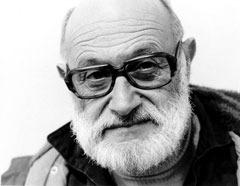Richard M. Weaver Quotes - Page 2
Richard M. Weaver (1966). “Life Without Prejudice: And Other Essays”
Richard M. Weaver (2013). “Ideas Have Consequences: Expanded Edition”, p.121, University of Chicago Press
Richard M. Weaver (2013). “Ideas Have Consequences: Expanded Edition”, p.136, University of Chicago Press
Richard M. Weaver (2013). “Ideas Have Consequences: Expanded Edition”, p.154, University of Chicago Press
Richard M. Weaver, Ted J. Smith (2000). “In defense of tradition: collected shorter writings of Richard M. Weaver, 1929-1963”, Liberty Fund Inc.
Poetry offers the fairest hope of restoring our lost unity of mind.
Richard M. Weaver (2013). “Ideas Have Consequences: Expanded Edition”, p.150, University of Chicago Press
Where character forbids self-indulgence, transcendence still hovers around.
Richard M. Weaver (2013). “Ideas Have Consequences”, p.73, University of Chicago Press
Richard M. Weaver (1985). “The Ethics of Rhetoric”, p.24, Psychology Press
Richard M. Weaver (2013). “Ideas Have Consequences: Expanded Edition”, p.137, University of Chicago Press
The remark has been made that in the Civil War the North reaped the victory and the South the glory.
Richard M. Weaver (1987). “The Southern Essays of Richard M. Weaver”, Liberty Fund
Richard M. Weaver, Ted J. Smith (2000). “In defense of tradition: collected shorter writings of Richard M. Weaver, 1929-1963”, Liberty Fund Inc.
Richard M. Weaver (1985). “The Ethics of Rhetoric”, p.24, Psychology Press
Richard M. Weaver (2013). “Ideas Have Consequences: Expanded Edition”, p.22, University of Chicago Press
Richard M. Weaver (2013). “Ideas Have Consequences: Expanded Edition”, p.156, University of Chicago Press
Richard M. Weaver, Ted J. Smith (2000). “In defense of tradition: collected shorter writings of Richard M. Weaver, 1929-1963”, Liberty Fund Inc.
Richard M. Weaver (2013). “Ideas Have Consequences”, p.16, University of Chicago Press
Letter to R. T. Eubanks (January 19, 1961) in "Language is Sermonic", p. 56, 1970.
Man ... feels lost without the direction-finder provide by progress.
Richard M. Weaver (1985). “The Ethics of Rhetoric”, p.216, Psychology Press
Richard M. Weaver (2013). “Ideas Have Consequences: Expanded Edition”, p.155, University of Chicago Press
Richard M. Weaver (2013). “Ideas Have Consequences”, p.13, University of Chicago Press







